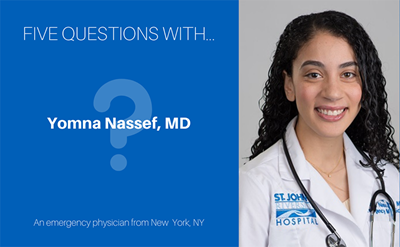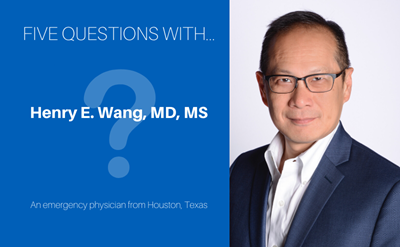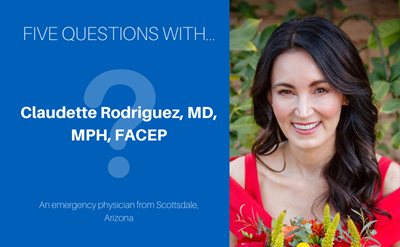You have dedicated your career to emergency medical research. How did you select the field? Could you talk about the moment that you knew emergency medicine was the best fit for you?
After graduating from college, I spent time volunteering for a community emergency department and as an EMT for the Princeton (NJ) First Aid and Rescue Squad. Within the first few hours of each experience I was hooked on emergency medicine. That summer I quit my engineering job and refocused all of my efforts on getting into medical school.
Many people may not realize that emergency medicine is a relatively young medical specialty, how would you characterize the trajectory of research in the field? Are there particular areas of emergency medicine research that you believe are poised for growth?
It's an exciting time for EM research. Over the last 10 years we have witnessed dramatic growth in the number and depth of studies. A large part of this growth is undoubtedly due to NIH’s support of emergency care-focused networks such as ROC, NETT and the current SIREN.
Collaboration, within emergency medicine and beyond, is going to continue to be critical in efforts to move the needle on research that informs clinical practice and many of the larger public health issues affecting society today. Hot topics over the next decade will include addiction treatment, machines that pump blood when your heart cannot (ECMO for cardiac arrest), less invasive stroke treatment, whole blood treatment of trauma, and sepsis resuscitation.
Congress is dedicating $2 billion per year for Alzheimer’s research, so we can expect a surge of attention on dementia and related issues. Finally, there will always be strong interest in treating, resuscitating and transporting people who experience cardiac arrest before they get to the hospital.
Conducting medical research can be quite demanding. What motivates you to keep doing the work that you do?
The reward of science is seeing the data drive clinical practice. You are a success as a scientist if your lifetime of work results in one practice change.
Researchers rely on their persistence, patience and rigor. Surely these qualities don’t develop overnight. What unique skills or experience make you a better investigator?
My biggest advice to early stage investigators is to learn to do your own statistical analysis. No one knows your data as well as you do. Directly handling and understanding a data set gives you a clearer view of the precious insights hidden deep among the numbers.
In addition to your day job, you have a reputation for being a prolific author and serve in leadership roles with both Annals of Emergency Medicine and as editor-in-chief for JACEP Open. But you can’t edit manuscripts all the time! What hobbies or interests do you pursue in your free time?
During college I aspired to become a professional violinist and symphony conductor but quickly realized that grade “B” talent was not enough... Today I apply those unused energies to my role as a first violinist in the Houston Civic Symphony and the World Doctors Orchestra.
 American College of Emergency Physicians
American College of Emergency Physicians







